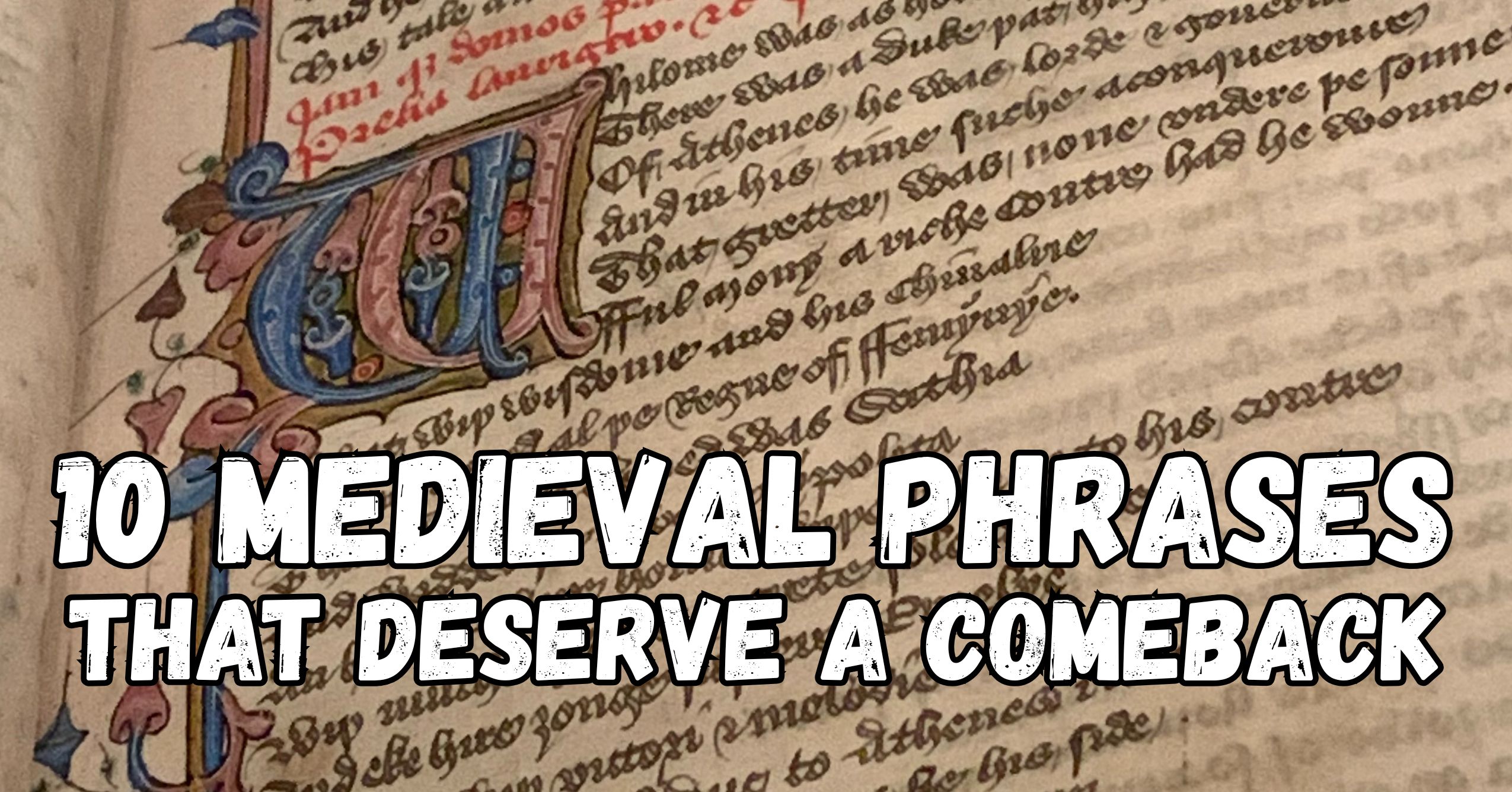
"Language is always changing - words fall out of use, phrases fade, and new slang takes their place. But every now and then, it's worth looking back at what we've lost. The Middle Ages gave us an extraordinary range of expressions: oaths that could shake heaven, blessings that upheld kings, and sayings so sharp they still ring true today. Some of these phrases have vanished entirely, while others quietly survive in our speech without us even noticing. Here are ten medieval phrases that we think deserve a comeback."
"By my troth In the Middle Ages, a person's "troth" meant their truth, faith, or pledged word - the same root as betrothal. When someone said "By my troth," they were swearing on their honour that what they said was true. The expression became common in late 14th-century Middle English, especially in Geoffrey Chaucer's Canterbury Tales, where characters use it as a mild, everyday oath."
Language constantly evolves, with words and phrases falling out of use while others persist unnoticed. Medieval English contributed a broad array of expressions, including powerful oaths, royal blessings, and sharp sayings that conveyed moral and social values. Some medieval phrases disappeared entirely while others survived embedded in daily speech. "By my troth" signified pledged truth or honour, became common in late fourteenth-century Middle English, and appeared in Chaucer as a mild oath. "The world, the flesh, and the devil" formed a moral triad representing external temptation, internal weakness, and spiritual evil rooted in early Christian teaching and homiletic literature.
Read at Medievalists.net
Unable to calculate read time
Collection
[
|
...
]